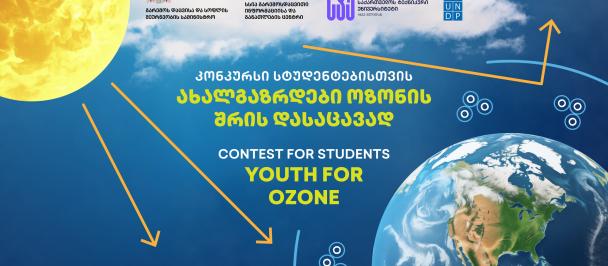Authors: Mashkhura Rakhmonova and Mukhammadjon Tursunov
Image: the participants of the event
How can we store fruits and vegetables longer, in any climate, and ensure they reach customers year-round? According to the Food and Agriculture Organization (FAO) report, in 2023, over 1.3 billion tons of food are wasted annually, with 45% of fruits and vegetables lost due to poor storage. Meanwhile, around 800 million people suffer from hunger. Climate change and inefficient refrigeration and storage methods further degrade food quality and contribute to global warming.
In addition, there is a decrease in yield of agriculture productivity and an acceleration of the decay process because of climate change, global warming, and the depletion of the ozone layer. Refrigeration and air conditioning technologies developed based on hydrochlorofluorocarbons (HCFCs) affect the depletion of the ozone layer, which in turn intensifies global warming. All these negative consequences add up to increased health risks for the population (skin cancer, eye cataract, etc) and decrease in agriculture productivity.
Image: the opening of the event
To work on tackling these issues, the Ministry of Ecology, Environmental Protection, and Climate Change of Uzbekistan, UNDP, and the Global Environmental Fund has been supporting green technologies within joint project “Complete HCFC Phase-out in Uzbekistan through Promotion of Zero ODS Low GWP Energy Efficient Technologies”. To demonstrate and test green technologies in real-world conditions for further upscaling, paving the way for the green transition of Uzbekistan's refrigeration and air-conditioning sector.
On 13 June 2024, the private firm Asel-Lazzet in Kanlykol, Karakalpakstan, celebrated the opening of one of such demonstration projects. The event, attended by local officials and representatives of the Ministry of Ecology, Environment Protection and Climate Change and UNDP, highlighted new refrigeration systems using R290 or propane, which is harmless to the ozone layer, led by Mr. Bahrom Sultanov, the mayor of Kanlykol District.
Image: the refrigeration equipment
“Asel-Lazzet” supplies over 1,000 children in 15 kindergartens with fruits and vegetables safely stored in eco-friendly freezers. This modern refrigerator chamber, with a capacity of 50 tons, ensures food security, prevent waste, and maintain high quality of food for children in remote areas.

the recepient of ozone-friendly refrigeration equipment
“We store the fruits and vegetables we grow in refrigerators for the nearby kindergartens to meet their annual demands. This year, we are happy to store fruits and vegetables in modernized refrigerator with eco-friendly and energy-efficient equipment.”said Sabur Bisenov, head of Asel-Lazzet.
Image: the participants of the event talking
“This refrigeration equipment works with R290, i.e. propane, and during the freezing process, which are the future technology”.Mr. Nozimbek Nosirov, chief expert of the Department of Atmospheric Air Protection Policy, highlighted the significance of these projects in implementing the Montreal Protocol.
By ensuring food security, cutting down on food waste and promoting eco-friendly refrigeration, this demonstration project aims to contribute to a greener, healthier future, especially for populations in remote areas.

 Locations
Locations

